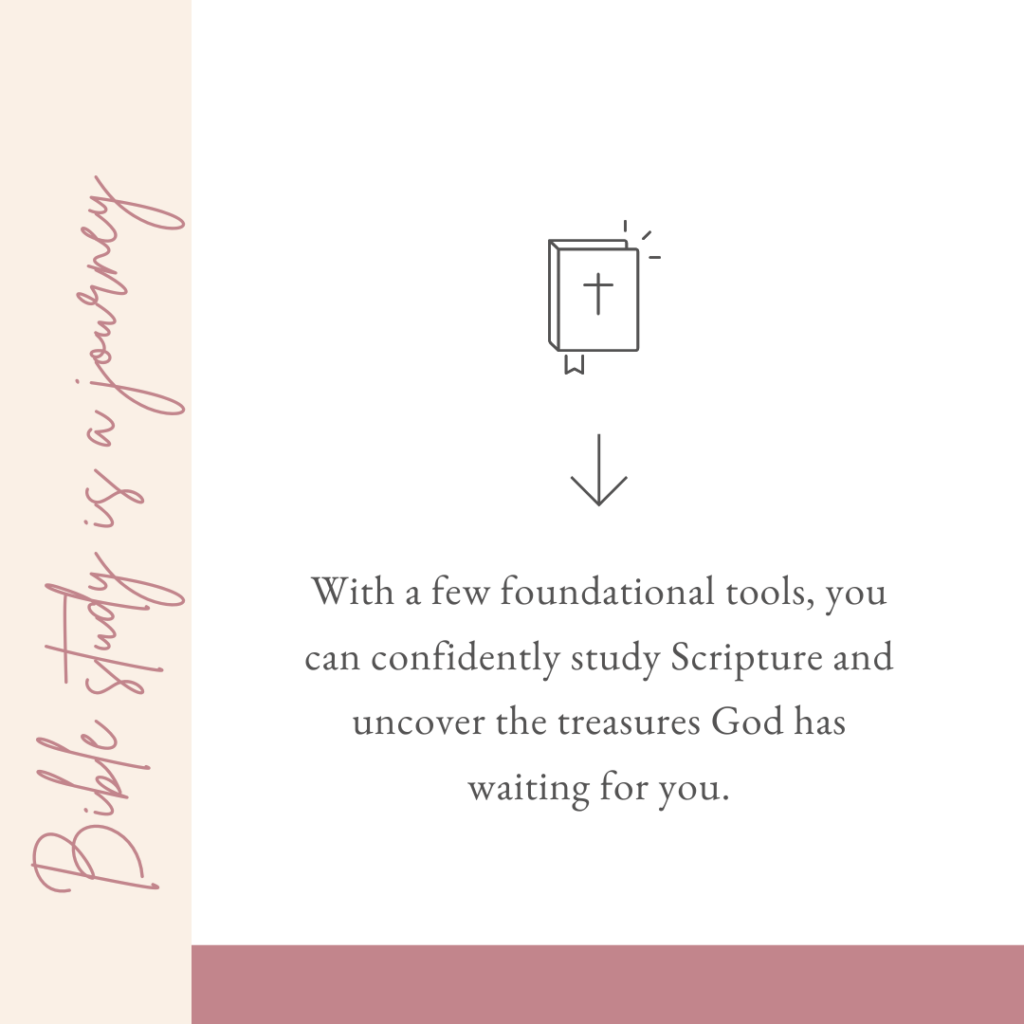If you’re like many women I talk to, you’ve opened your Bible, ready to dive in, only to feel overwhelmed or unsure of where to start. You might wonder, What does this verse really mean? How does it connect to my life today? This Beginner’s Guide to Bible Study can help you navigate through these questions.
Let me tell you, you’re not alone. Studying the Bible can feel daunting at first, but the good news is that God never intended for His Word to be confusing or out of reach. With a few foundational tools, you can confidently study scripture and uncover the treasures God has waiting for you.Here’s a beginner’s guide to Bible interpretation that will help you approach scripture with clarity, understanding, and joy.
1. Pray Before You Begin
Before you even open your Bible, take a moment to pray. Ask God to give you understanding and wisdom as you read. The Holy Spirit is your ultimate teacher, and He delights in revealing God’s truth to you.
Here’s a simple prayer you can use:
“Lord, thank You for Your Word. Please open my heart and mind to understand what You want to teach me today. Help me see how it applies to my life. In Jesus’ name, amen.”
2. Choose a Passage to Study
If you’re not sure where to start, don’t worry—you don’t need to read the Bible cover to cover right away. Start with a shorter book, like Philippians, or focus on a single Psalm or a parable from one of the gospels. The key is to choose a manageable portion that you can read deeply rather than rushing through.
3. Observe: What does the passage say?
This is the “detective work” phase. Read the passage carefully, maybe even a couple of times, and jot down your observations. Ask yourself:
- Who is speaking or being spoken about?
- What is happening?
- Are there any repeated words or phrases?
- What’s the tone or mood?
For example, if you’re reading Psalm 23, you might note: David describes God as a shepherd who provides and protects. Words like “comfort” and “restore” appear, pointing to God’s care.
4. Interpret: What does it mean?
Now it’s time to dig deeper. What did the passage mean to its original audience? This step requires understanding the cultural, historical, and literary context of the scripture.
Ask these questions:
- What is the broader story or chapter about?
- What was happening in history at the time?
- How does this passage fit within the entire Bible?
For help with interpretation, consider using a study Bible or a reliable commentary. These tools provide background information and insights that can clarify difficult passages.
5. Apply: What does it mean for me today?
God’s Word is alive and active, meant to transform your heart and life. Once you understand the passage, think about how it applies to you personally.
Ask yourself:
- Is there a promise to claim?
- Is there a sin to confess or avoid?
- Is there a command to follow?
- Is there a truth about God to praise Him for?
For instance, if you’re studying Philippians 4:6-7 (“Do not be anxious about anything…”), the application might be: When I feel overwhelmed, I can pray and experience God’s peace instead of giving in to anxiety.
6. Write It Down
There’s something powerful about putting pen to paper (or fingers to keyboard). Journaling helps you process and remember what you’ve learned.
Here’s a simple format to use, often referred to as the SOAP method:
Prayer: Respond to God with a prayer based on what you’ve read.
Scripture: Write out the verse or passage.
Observation: Note key words, phrases, and themes.
Application: Write how you’ll apply the passage to your life.
7. Be Patient and Persistent
Bible study is a journey, not a sprint. Some days, the meaning of a passage will jump out at you. Other days, it might take more effort. But keep going! The more time you spend in God’s Word, the more you’ll understand His heart and hear His voice.
Remember, God is honored by your desire to know Him. He promises that when you seek Him, you will find Him.
You will seek me and find me when you search for me with all your heart. – Jeremiah 29:13 CSB
Tools to Help You Get Started
If you’re ready to dive in, I’ve included a list of recommended resources at the bottom of this post.

Friend, you don’t have to be a Bible scholar to understand God’s Word. All you need is a willing heart, an open Bible, and a desire to hear from Him. Let this be the season where you grow confident in studying the Bible, knowing that God is right there with you, guiding you every step of the way.
P.S. Want to dive deeper? I’ve linked a beginner-friendly Bible study resource to help you start strong. Let’s discover the riches of God’s Word together!
P.P.S If you’re looking for weekly encouragement and Scripture reading plans, opt-in to join our No Dusty Bibles community at the link below. Every Monday, I’ll show up in your inbox with what we are reading for the week + links to our daily podcast + pep talks for daily reading.
What would you add to this post? Comment below with your favorite tip for daily Bible reading to encourage others as they stop by.
This post contains affiliate links, which means that at no additional cost to you, I may receive a small commission if you click on and/or purchase from one of the product links. Affiliate links help to "keep the lights on" at The Rescued Letters and I only recommend products that I personally use or are from companies that I know and trust. I really appreciate your support in this way. You can read my full disclosure policy here.
RELATED RESOURCES
- NIV Study Bible: Dive deeper into Scripture with the NIV Study Bible, featuring comprehensive study notes, maps, and articles to enhance your understanding of God’s Word.
- ESV Study Bible: The ESV Study Bible offers insightful commentary, cross-references, and theological articles, making it an invaluable resource for in-depth Bible study.
- The New Strong’s Expanded Exhaustive Concordance of the Bible: Unlock the meanings of biblical words with this exhaustive concordance, providing original language definitions and verse references for thorough study.
- Press On With Strength and Joy: A Printable Devotional on Philippians: Whether you’re looking for a quick, impactful study for yourself or a thoughtful resource to share with a friend, the Press On devotional is a great way to dive deep into God’s Word and find encouragement to keep pressing forward.
- Bible Gel Highlighters: Enhance your Bible study with these no-bleed gel highlighters, perfect for marking key verses and themes without damaging thin Bible pages.
- Moleskine Classic Notebook: Record your reflections and insights in this durable, high-quality notebook, ideal for journaling during your Bible study sessions.





